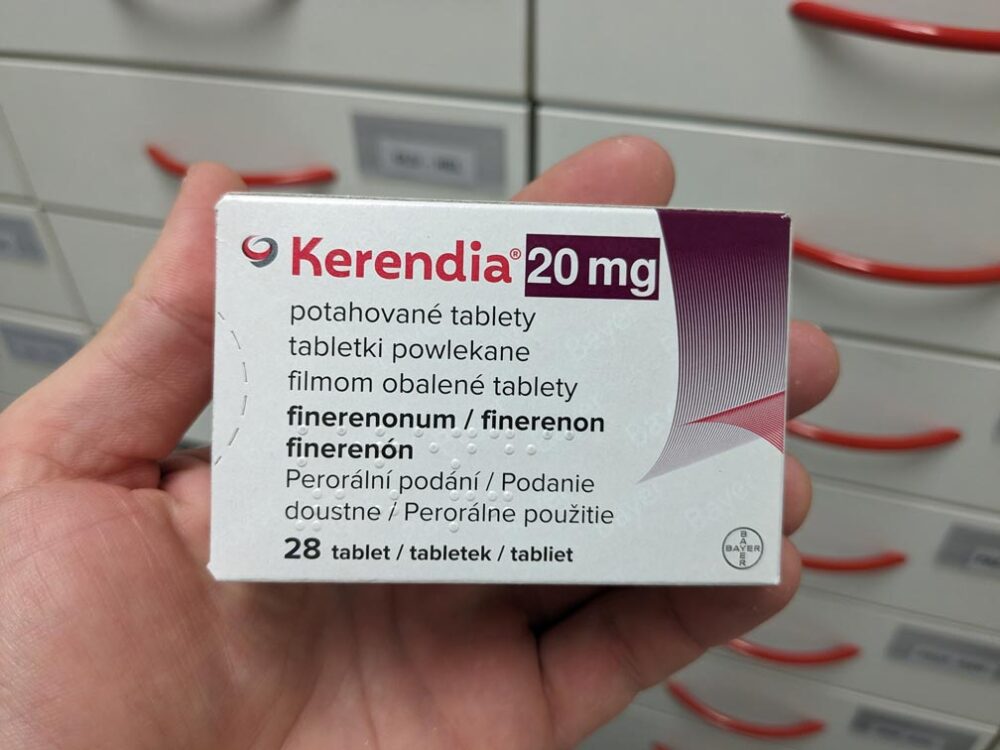Advertisment
Finerone treatment shows promise for heart failure

Compared to placebo-treated patients with heart failure and mildly reduced or preserved ejection fraction, similar patients treated with finerone have achieved a significantly lower rate of a composite of total worsening heart failure events and death from cardiovascular causes.
The findings were reported on September 1, 2024 at the annual meeting of the European Society of Cardiology and were published simultaneously in the New England Journal of Medicine.
“We saw benefit regardless of the ejection fraction and even in patients who were on other approved therapies,” said trial principal investigator and corresponding author Scott Solomon, MD, the director of the Clinical Trials Outcomes Center at Mass General Brigham and the Edward D. Frohlich Distinguished Chair at Brigham and Women’s Hospital in Boston.
Approximately half of all people living with heart failure also have mildly reduced or preserved left ventricular ejection fraction. There are limited treatment options for this condition. The result of this new study suggests that the non-steroidal mineralocorticoid receptor antagonist finerenone could become a treatment option for such patients.
In this double-blind trial, the investigators randomized, in a 1:1 ratio, subjects with heart failure and a left ventricular ejection fraction of 40% or greater to treatment with finerenone (maximum dose of 20 mg or 40 mg once daily) or matching placebo, in addition to usual therapy.
The endpoint was a composite of total worsening heart failure events (with an event defined as a first or recurrent unplanned hospitalization or urgent visit for heart failure) and death from cardiovascular causes.
Over a median follow-up of 32 months, 1083 primary-outcome events were reported in 624 of 3003 subjects in the finerenone cohort, and 1283 primary-outcome events were reported in 719 of 2998 subjects in the placebo cohort, a statistically significant difference (P=0.007).
Total worsening heart failure events were 842 in the finerenone cohort and 1024 in the placebo cohort, also a statistically significant difference (P=0.006).
The percentage of patients who died from cardiovascular causes was 8.1% in the finerenone cohort and 8.7% in the placebo cohort, a non-significant difference.
The authors said, “For each component of the primary outcome, the rate was lower in the finerenone group than in the placebo group, and the results for the primary outcome were consistent across all prespecified subgroups.”
They said, “The overall incidence of serious adverse events was similar in the two trial groups, although elevated creatinine levels and hyperkalemia occurred more frequently and hypokalemia occurred less frequently in the finerenone group than in the placebo group.”
Soloman added, “This drug represents a new drug class that may become a pillar of therapy for this disease.”





